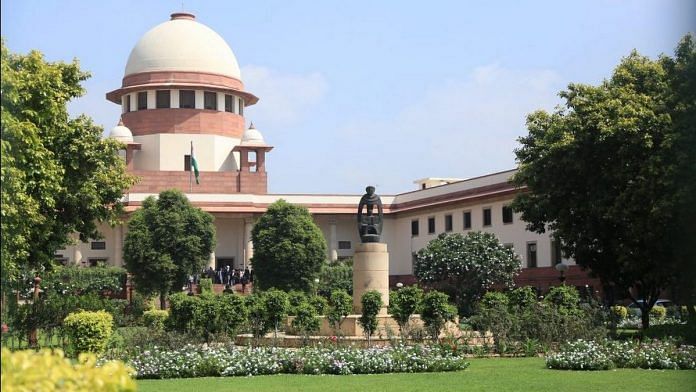New Delhi: “Freedom of press is supreme”, but “it cannot be one-way traffic”, a three-judge Supreme Court bench observed Tuesday in connection with Jay Shah’s defamation case against news portal The Wire.
The bench, featuring Justices Arun Mishra, M.R. Shah and B.R. Gavai, lifted the stay on trial court proceedings in the case, asking the Gujarat court to finish the trial “as expeditiously as possible”, but also observed that there was a bigger problem of how journalists gave individuals short deadlines for responding to questions.
The court’s observations came after Jay Shah’s counsel Neeraj Kishan Kaul said his client was “served the notice by The Wire to respond at 1am” and the report was published at 6pm the next day.
Meanwhile, senior advocate Kapil Sibal, appearing for The Wire, informed the court that the news organisation was withdrawing all its three special leave petitions “unconditionally”, and was ready to face trial.
Also read: Two Supreme Court benches, two different takes on freedom of speech and expression
‘Institutions being harmed’
The court said it was not inclined to hear the merits of the case, but pointed towards a bigger problem where “institutions were being harmed” by serving notices with extremely tight deadlines to respond.
“The way notice is being served only 10 or 12 hours in advance is a question that seriously needs to be considered by the court. This kind of threatening of disclosure cannot be given. We keep the question open to be decided at a later point of time,” noted Justice Mishra.
However, since Sibal was worried that this statement might be used by Jay Shah’s counsel to affect the merits of the case in the trial, the court noted that “observations will not affect the case on merits of the cases”.
The court had also questioned Solicitor General Tushar Mehta on what he felt about such notices, to which Mehta replied that “yellow journalism needs to be curbed. So far as print and electronic media is concerned there are guidelines, but for the web there is nothing”.
In the midst of the arguments, the court, while dictating the order, said it “wishes to say a lot of things but cannot say those things”, and that “there are several cases in which truth needs to be told to the country”.
The case
The case pertains to a report by journalist Rohini Singh, which alleged that Jay Shah, son of BJP chief Amit Shah, now Union Home Minister, had made exponential gains in his business venture owing to his father’s power and position since the party came to power in 2014.
Jay Shah had separately filed a civil defamation suit of Rs 100 crore against the website, which was later clubbed with the criminal defamation case. Jay Shah rejected the charges and said the report was “false, derogatory and defamatory”.
The trial in Gujarat was stayed by the Supreme Court on 23 July 2018 after The Wire filed three special leave petitions, once its plea in the Gujarat High Court had been dismissed.
In September 2018, Jay Shah’s counsel Harish Salve had requested the apex court to lift the stay on the Gujarat trial court proceedings on the criminal defamation complaint. Salve had said his client wants to see what evidence comes up in the trial.
Former Chief Justice of India Dipak Misra, while presiding over the bench hearing the case last year, had asked both parties if they were open to a settlement. Jay Shah’s counsel said he was, but The Wire had dismissed the possibility, insisting the article was “factual and accurate”.
The Wire’s statement
After Tuesday’s hearing, The Wire said in a press statement: “Circumstances have arisen as per which we believe it is best if we make use of the opportunity to justify everything we have stated in our article at the trial. We are therefore withdrawing.
“We believe the fight for media freedoms will have to be advanced at all levels. Our article was factual, based not only on record but on facts admitted by Jay Amit Shah. Though it is still very much our belief that neither a criminal case nor an injunction is legally justifiable, we intend to face trial in Gujarat secure in the knowledge that the constitutionally mandated rights of the media will eventually prevail.”
Also read: CJI criticises media, draws flak. But his judgments have never been pro-freedom of speech



